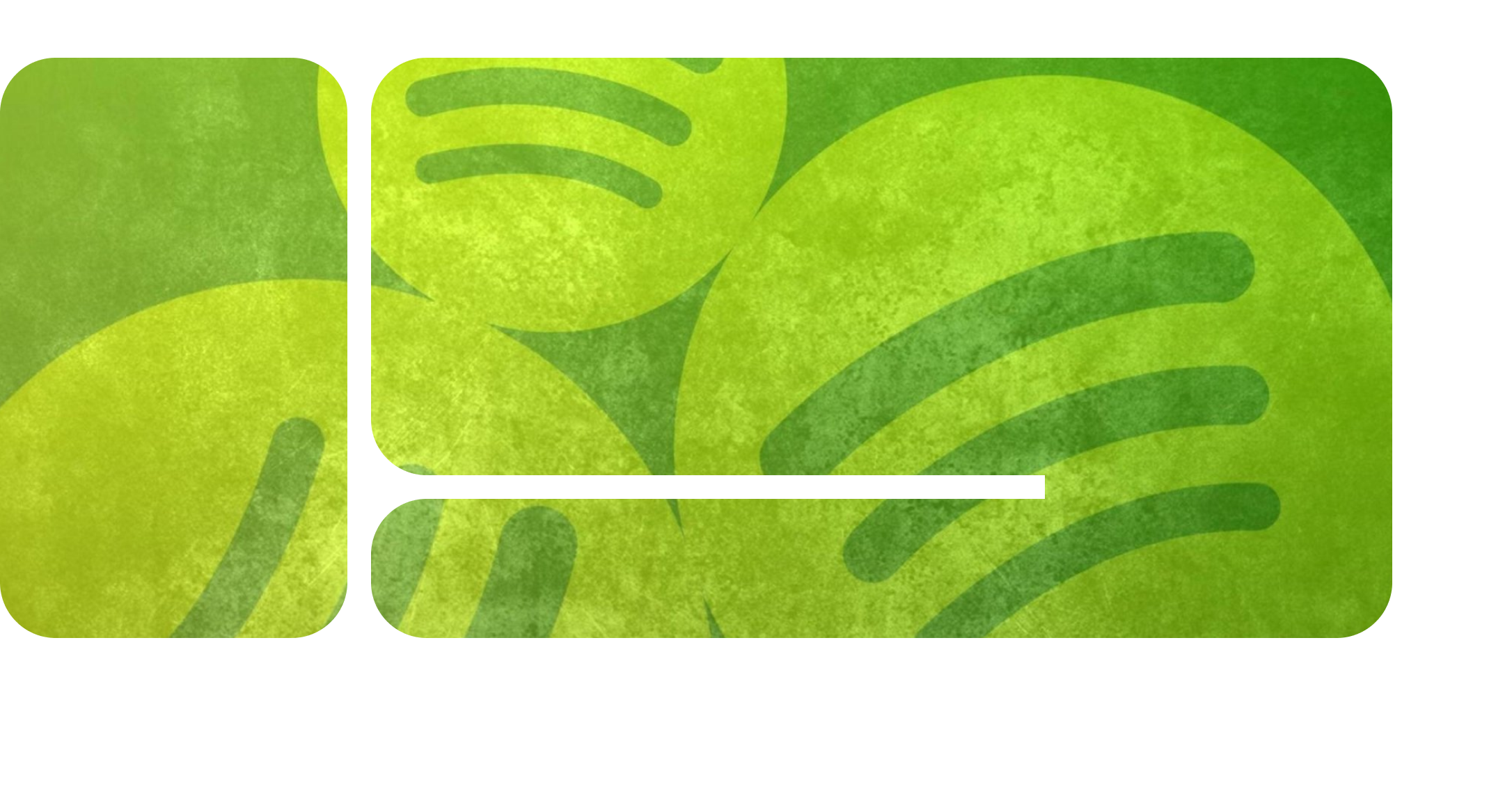Industry Groove – Week 17

The strong growth of Spotify in the first quarter shows that the ongoing discussion about a new streaming model is solely an issue within the industry that does not affect consumers. This is an aspect that must not be ignored when searching for an optimized model. Because not everything that is good for the industry and musicians is automatically good for the fans.
AI and deepfakes continue to dominate most headlines. I have read countless articles and comments, and what one mainly feels is a strong sense of uncertainty, especially because much is still legally unclear and also because in many places it is difficult to estimate what AI can actually do and what it cannot (yet). This week, I would like to present some initial solutions and, above all, show that while the topic deserves attention, there is no reason to panic.
Should artists make their voices available for deepfakes?
- Many in the music industry were not aware of how good deepfakes have become, so the Drake-The-Weeknd song may have been a real shock for many.
- Now, after the initial shock has subsided, solutions are being sought. And some argue that we should not close ourselves off to the technology and should make our voices available.
- Grimes is presenting herself as a pioneer, as she states that anyone can use her voice for deepfakes if the profits are split 50/50.
- “Feel free to use my voice without penalty. I have no label and no legal bindings. I think it’s cool to be fused w a machine and I like the idea of open sourcing all art and killing copyright,” she writes on Twitter, forgetting that it is precisely copyright that ensures that profits are split 50/50 and that she can enforce this. It is also worth noting that Grimes, as a successful and financially secure artist, is operating from a very privileged position and can easily engage in such experiments.
- They argue that focusing solely on enforcing copyright is the wrong approach. Instead, new monetization opportunities should be explored and utilized, such as the proposed artist API, which should capitalize on their uniqueness.
- Specifically, this could look like training an AI on one’s own music and voice. This high-quality and artist-approved AI would then be made available to fans and creators through an API access for a fee. They could use it to create songs and when these are released, the artist would receive their share.
- For Building Stans, however, this is just one of numerous possible use cases for an API. They are also well aware that access to the API would need to be carefully regulated. It’s all still in the future, but at least worth considering.
AI music and deepfakes: No reason to panic
- Now that it has become obvious what AI is already capable of and awareness is growing that the technology is rapidly improving, many in the music industry may have a queasy feeling. This is not entirely unfounded, but there is still no reason for panic. Therefore, I would like to give voice to the thoughtful voices and commentators.
- For example, there is Stuart Dredge from Music.Ally, who points out that AI music can and will bring many advantages. We should not limit everything to the “dick moves” of certain people who want to clone the voices of artists without their permission and make money from it. He is right.
- By the way, a certain Daniel Ek, perhaps known to some as CEO of Spotify, also shares this view. On the one hand, he is excited about the possibilities that AI offers for the music industry. At the same time, he is offering to collaborate with labels to prevent certain excesses. Allowing innovation while protecting creators will certainly not be an easy balancing act.
- Furthermore, it must be noted that AI tools have made enormous progress and, even if they have not yet reached mass usability, they are likely on the cusp of doing so. This investigation by The Verge shows, however, that currently it is still rather cumbersome to produce a deepfake. As an example, another “Fake Drake” song called “Not a Game” is used, whose vocals are based on an a capella offered on the Looperman website. The voice of Drake was then overlaid on these vocals using AI technology. The song’s beat, meanwhile, comes from the BeatStars platform. Thus, artificial intelligence was only used to generate Drake’s voice here. Although all of this may not have been very complicated, it is far more than simply generating a song with a single prompt.
- Jessica Powell of Audioshake doubts that “Heart on My Sleeve” is a purely AI-generated song, but rather that more manual work went into it as in the example above. She also raises the question of whether these deepfakes are simply comparable to remixes. This is not entirely wrong, especially when it comes to playful examples like Rihanna singing a Beyoncé song, which, apart from legal aspects, is harmless. The problem is that this technology can put any lyrics in an artist’s mouth. Powell, however, is convinced that ways will be found to use this technology and create new monetization opportunities.
- Tatiana Cirisano believes she has identified an advantage of the circulating deepfakes. If an artist is unpredictable and their music is not interchangeable, it is much harder to produce a AI clone of them than, for example, with Drake, whose songs, let’s be honest, often sound very similar. Perhaps AI music can contribute to more individuality again.
Spotify grows stronger than expected and may increase prices
- Spotify has released its Q1 2023 figures, which show greater growth than expected.
- The number of premium subscribers increased to 210 million, which is 5 million more than in the previous quarter and 28 million or 15% more than in Q1 of the previous year. All regions have grown stronger than predicted, especially Europe and Latin America.
- Overall, Spotify has 515 million monthly active users (+22% compared to Q1 2022).
- However, the revenues did not quite meet expectations. Although they grew by 14% YoY to €3.04 billion, fluctuations in the advertising business prevented the company from reaching its goals. Advertising revenue amounted to €329 million, while subscriptions brought in €2.7 billion.
- As almost always, Spotify still reports a loss. In this quarter, it amounts to 156 million euros.
- Despite the impressive growth of premium subscribers, the ratio of premium to free users continuously decreases. In Q1 2019, 46% were paying customers, in Q1 2022 the number dropped to 43%, and now it reached a new low of 40%. This is relevant because significantly more money flows to the artists from the premium subscribers.
- And then a small miracle actually happened: Daniel Ek announced that he wants to raise prices. However, there is also a “but”: this depends on negotiations with the major labels. At least Universal and Warner have already indicated pretty clearly that they consider the price increases overdue.
Indies secure 27% of the publishing market
- According to new figures published by the Independent Music Publishers Forum (IMPF), the publishing companies affiliated with major labels hold a market share of 59.9%.
- According to their calculations, the independent sector increased from €1.95 billion (2020) to €2.08 billion (2021), which corresponds to a market share of 27.1%.
- And what about the other 13% you may ask? IMPF defines independent as having less than 5% market share. Therefore, Kobalt (6.8%) and BMG (6.2%) are not included. Now the math adds up.
- However, even without these two, the independent sector is the strongest player, ahead of the largest major, Sony Music Publishing, which has a market share of 24.4%.
- The entire publishing market was worth 7.68 billion euros in 2021.
- The 2022 figures are not yet available – as most musicians know all too well, publishing always takes a bit longer.
- Currently, around 80% is paid out for the master rights and 20% for the publishing rights. The publishing industry refers to this as a remnant of the CD era, when labels had high costs for the production and distribution of physical products. Now, in the streaming age, this distribution should be reconsidered.
Investments in Web3 massively decline
- As Music.Ally correctly points out, many technologies have been declared the “Next Big Thing” in recent years. Examples include concert livestreaming, social audio, NFTs, the metaverse, Web3, and currently AI. Quite a few of these were soon dropped again.
- Now, companies working in Web3 are also feeling the fickle interest of the public and investors. Venture capital funding plummeted by 82%. Specifically, it amounted to $9.1 billion in Q1 2022 and now, one year later, just $1.7 billion. The number of deals also fell from 770 to 333.
- However, this may not necessarily mean much, as funding has declined in almost all sectors. In Web3, it has simply declined more strongly, partly fueled by various scandals and bankruptcies in the crypto sector.
- Now that the hype is elsewhere, we can first weed out those who just jumped on the hype train, and secondly refocus on how the technology can actually bring value.
Bonus Reads
- “How Did Hip-Hop Media Get So Bad?” – the title essentially says it all, yet it doesn’t do justice to the very reflective article. Bad journalism is one thing, but the proximity to very conservative circles and ideals in the best case, and far-right extremists in the worst case, is another.
- Let’s stick with the hip-hop writers. Two weeks ago I linked to Complex’s list of the most powerful figures in the hip-hop media world. Now, Complex Mag has also dedicated an article to the pioneers of the hip-hop media landscape. Show some respect!
- Frank Ocean’s performance at Coachella has sparked discussions and inspired Eleanor Halls to engage in some interesting thought experiments on the topic of “What do artists owe their fans?”
- A study shows that compared to musical accompaniment, lead vocals have become quieter over the years. In addition, there are clear differences between different genres. I am always fascinated by the nerdy topics that some people choose for their studies. Awesome!











